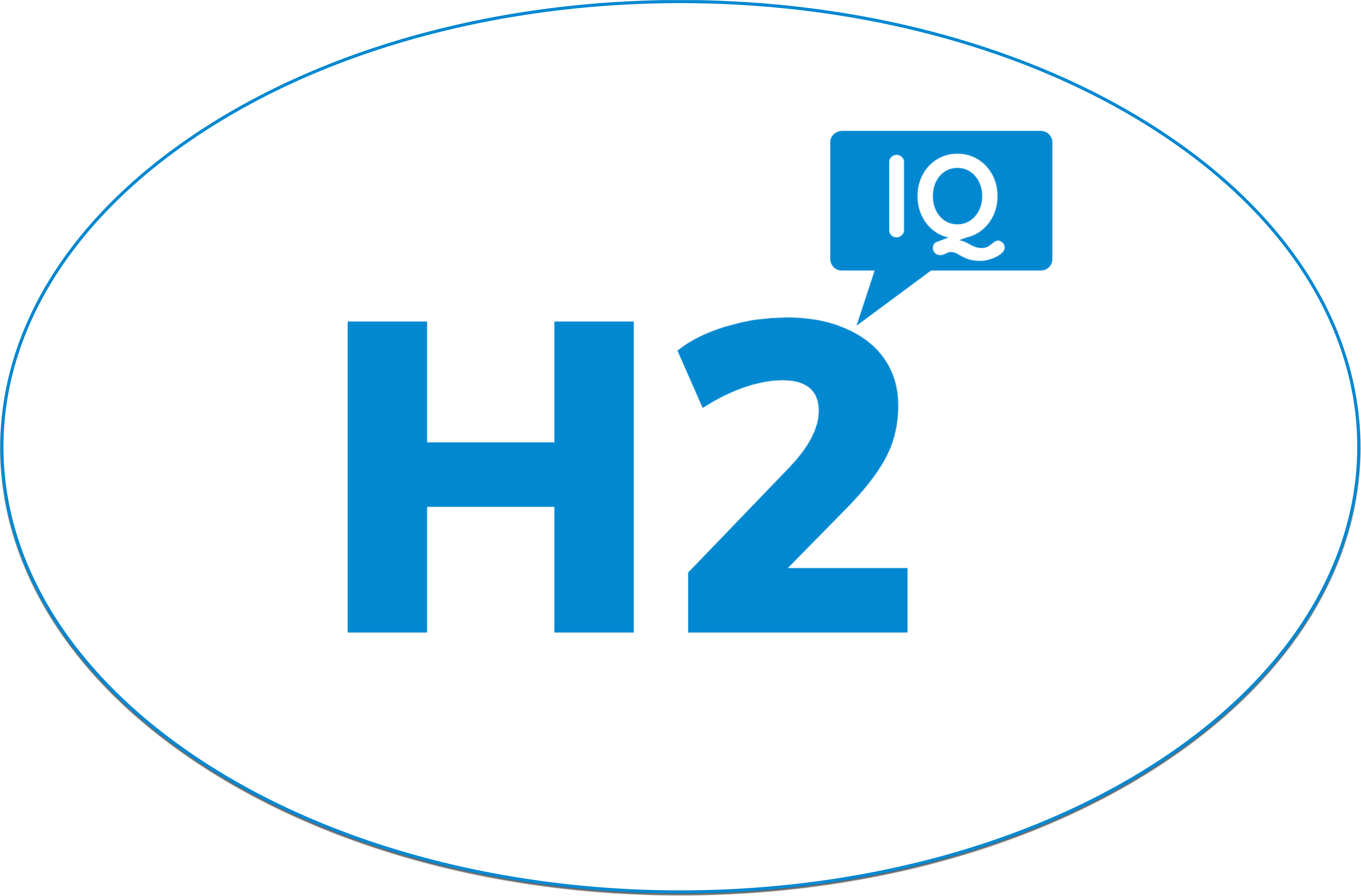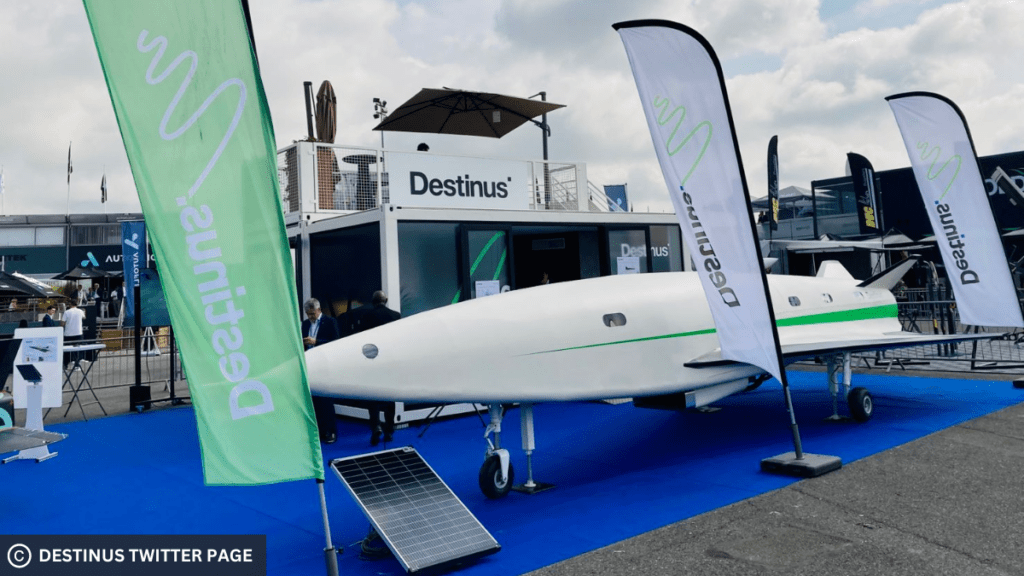
PARIS (PRWEB) – Destinus (http://www.destinus.com), a European aerospace firm advancing the frontiers of high-speed, hydrogen-powered aviation, unveiled its third demonstrator, the Destinus 3, at the grand opening of the 54th Paris-Le Bourget International Air Show. This groundbreaking model is set to be the world’s first hydrogen-powered supersonic unmanned vehicle, aiming to achieve a speed of Mach 1.3. Destinus has slated its supersonic flight campaigns, propelled by liquid hydrogen, for 2024.
Destinus is on a mission to launch the world’s first commercial hypersonic passenger plane entirely powered by hydrogen, the Destinus S, between 2030 and 2032. With a proposed cruising speed of Mach 5 and a capacity to accommodate 25 passengers, the Destinus S is set to outpace the Concorde by more than two and a half times. At such velocities, journeys from Paris to New York would take just 1.5 hours.
Looking ahead to the 2040s, Destinus plans to introduce a larger model, the Destinus L. This behemoth is expected to transport 300 to 400 passengers to any global destination in a mere two or three hours, all while achieving staggering speeds of up to Mach 6. The Destinus L will leverage cryogenic hydrogen for propulsion and cooling, setting new industry standards for efficiency and sustainability.
After successfully completing flight tests with two earlier demonstrators and rigorously examining its hydrogen engine both on the ground and in the air, Destinus is celebrating the inauguration of its third full-scale demonstrator, Destinus 3. This advanced 10-meter, 2-tonne prototype is equipped with Destinus’s proprietary hydrogen afterburner technology and a novel autopilot system. The design sets a new benchmark for supersonic capabilities and technological sophistication.
“The propulsion system for Destinus 3 will incorporate a kerosene-fueled turbojet engine in conjunction with a liquid hydrogen-fueled afterburner. We’re also developing plans to trial a fully hydrogen-based system for both turbojet and afterburner,” stated Mikhail Kokorich, CEO of Destinus. He added, “The demonstrator is equipped with a liquid hydrogen tank and an innovative feed system that features an electric pump. Destinus 3 is on track for its inaugural subsonic flight in early 2024, with supersonic flight campaigns to follow in late 2024.”
The groundbreaking hydrogen afterburner technology was successfully flight-tested in May 2023 on the Destinus 1 (Jungfrau) demonstrator. The Destinus 1 (Jungfrau), a 4-meter vehicle, and Destinus 2 (Eiger), a 10-meter vehicle, have already successfully demonstrated their prowess in subsonic flight. These two models were instrumental in verifying the flight capabilities of a hypersonic aero shape based on a waverider concept at low speeds and advancing the study of hypersonic aero shapes, respectively.
Hypersonics will revolutionize aviation technology and usage in the 21st century. It is vital for Europe to remain a leader in the aeronautical field, and not miss this turning point that the USA, China and Russia are preparing,” said General Michel Friedling, former Commander of the French Space Command and member of the Destinus Advisory Board.
“It’s noteworthy that the hypersonic propulsion technologies developed by Destinus are based on the use of hydrogen. This underlines, once again, the unique role of hydrogen as the fuel of the future for aviation,” remarked Philipp Rösler, the former Vice Chancellor of Germany, Minister of Economics and Technology, and current member of the Destinus advisory board.
Hydrogen fuel, with its heat of combustion three times higher than kerosene and exceptional cooling capabilities, has emerged as the optimal choice for building efficient and robust combined cycle engines. These engines would include a turbojet component for subsonic and supersonic speeds and a ramjet for hypersonic speeds. Leveraging hydrogen not only promotes efficiency but also significantly reduces the environmental impact of future hypersonic flights, highlighting Destinus’s commitment to sustainable aviation.
About Destinus:
Destinus, a pioneering European start-up founded in 2021 by the physicist and serial entrepreneur Mikhail Kokorich, is charting a new course in aeronautics, propulsion, and cryogenic hydrogen technologies. The company’s primary mission is to create hypersonic hydrogen-powered passenger aircraft, leading the way to a new era of sustainable and ultra-fast air travel.
Leveraging the talents of its 140 highly skilled employees—drawn from the top echelons of the aerospace industry—Destinus operates across five countries, with offices in Switzerland, France, Germany, Spain, and the Netherlands. The company’s expertise extends to developing autonomous aircraft for enhancing safety, as well as applying its in-depth knowledge of hydrogen and turbomachinery to the burgeoning sustainable energy and hydrogen mobility sectors.
Destinus secured €50 million from private investors to accelerate the development of hydrogen-powered hypersonic flight and allied technologies. The following year, the Spanish government awarded the company €12 million in funding for two projects aimed at boosting hydrogen propulsion capabilities. This investment reflects Spain’s ambitious goal to establish itself as a global leader in renewable hydrogen production and hydrogen-powered mobility solutions.
In a significant strategic expansion, Destinus acquired Netherlands-based OPRA—a specialist in industrial gas turbines—in April 2023, now operating as Destinus Energy.
IMAGE (above): Picture of the Destinus’ booth at the Paris-Le Bourget International Air Show. Credit: Destinus Twitter page.





